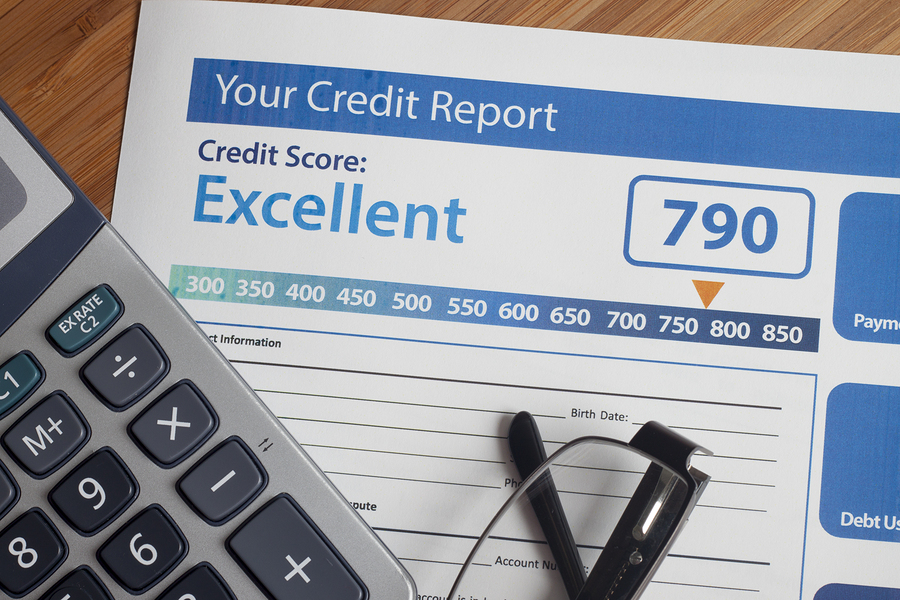Understanding Your Credit Report

Your credit report is a very important, detailed document including all the information concerning your financial history. Having a well-managed credit report will typically guarantee that you have a good credit rating and credit score. Not only will lenders see you as a less risky borrower when you have a good credit rating, but they will also be more likely to approve your request to buy property and other investments in the future. In addition, having a strong credit rating will allow you to qualify for lower interest rates on new lines of credit, loans, and even mortgages.
In short, a clean credit report is your key to unlocking the door to all your financial goals. On the other hand, a bad credit report can harm your chances of not only achieving financial dreams but also acquiring simple and essential assets. A negative credit rating implies you’re a risky borrower who doesn’t have a favorable payment history. This can hinder your chances of renting a car or property, and even jeopardize getting hired for a job. This is why understanding how credit reports work and how to use them properly is paramount to successfully reaching a positive credit report.
Fact: You are legally entitled to receive 1 free credit report, once a year, from each of the 3 credit bureaus.
What is a Credit Report?
A credit report is an in-depth document that includes all of your credit history and advises borrowers on whether they are credit worthy. The factors that make up your credit report include your credit history, an overview of your accounts, and any public records that affect your financial life, such as child support or alimony.
Your credit score is calculated using your credit report, which reveals your level of risk as a borrower. Thus, having a positive, clean credit report is necessary in order to live a financially successful life.
Your 3 Credit Reports
In reality, everybody has more than just one credit report. Seeing as there are three central credit bureaus, Equifax, TransUnion, and Experian, you have three different credit reports. Each credit bureau has a separate version and style of your credit report. Thus, when people say to check your credit report frequently, you really have to check all three of them. This is because lenders and creditors check each report during a credit check, in order to assess your level of risk. Therefore, you must check all three reports and make sure the information on them is accurate, as mistakes are more than possible.
How to Read Your Credit Report
All of your credit reports are designed and presented in a consumer-friendly way, this means you will be able to understand the information contain in them. Even though each bureau differs in the design of their report, most of the content is generally the same, including basic credit information and history.
Each of Your Reports Will Contain the Following Information:
- Personal Information. This part of the report includes your personal information, such as your name, current and previous address, social security number, date of birth, and previous and current employers. It may include any aliases given to you. For instance, using your middle initial to open an account means your middle initial will appear on the report.
- Account Summary. This section includes a list of all your credit accounts and loans, such as the type of account, the current balances in these accounts, open/close dates and your current account status. Even though each bureau displays the information differently, they all include these details.
- Public Records. Your credit report will show any public record information concerning you or your credit. Any incident that may affect your credit worthiness, such as bankruptcy and foreclosure, is stated here as well. Other details, such as information from the IRS concerning unpaid tax liens or previous collections accounts are also disclosed here.
- Credit Inquiries. Every time a creditor, lender, or other lending institution pulls your credit report to approve you for new credit, your credit score slightly drops. These are called hard inquiries and they are recorded on your credit report each time you apply for a new line of credit. Applying for a lot of new credit all within a short period of time can be a sign that you’re spending beyond your means, in the eyes of a new lender or creditors, this makes you a risky borrower.
- Consumer Statements. Your credit report will have a section for consumer statements. These are statements you wish to make concerning certain information on your credit report and potential new creditors will be able to read them when they pull your credit report. If you’ve ever had a conflict with a credit bureau over false information and the investigation did not resolve this issue, you have the right to add a short 100-word statement to your credit file, free of charge, explaining your side of the issue. You can also leave a statement if you’ve been a victim of identity theft and want to block anyone from opening an account under your name, without your consent.
Fact: There have been many studies conducted that show that roughly 3 out of every 4 credit reports contains some type of error.
How to Use Your Credit Report to Your Advantage
This may seem a bit obvious but, your credit report is yours, so use it to your advantage. Check it at least once a year, make sure all the information is correct, and dispute any errors you find. Credit bureaus are providing a service and they will do everything they can to make sure that the information contained in your credit report is accurate, but at the end of the day, mistakes are inevitable.
This is why it is so important for you to take the health of your credit report into your own hands. Financial experts suggest that you check your report before applying for very important or expensive products like large personal loans, mortgages, car loans, or lines of credit. This way, you can fix any errors that might appear on your report before lenders and creditors even see it.



